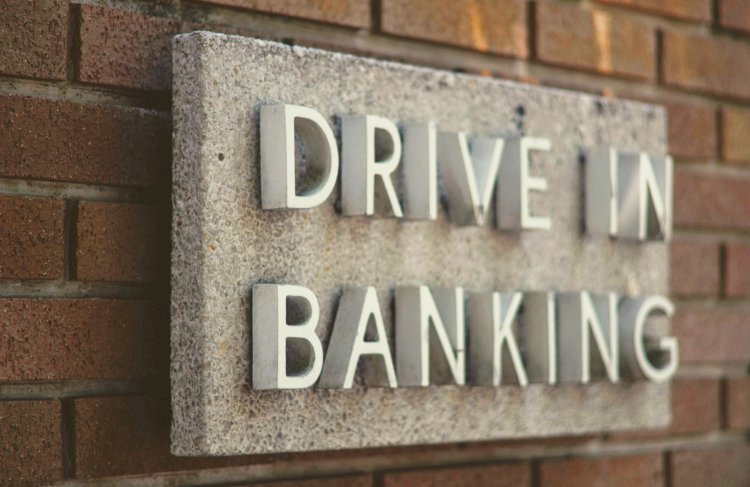CAN A SEQUESTRATION DECISION BE MADE BY COURTS IN TERMS OF THE RISKS OF BANKS THAT HAVE NOT YET OCCURRED?
CAN A SEQUESTRATION DECISION BE MADE BY COURTS

CAN A SEQUESTRATION DECISION BE MADE BY COURTS IN TERMS OF THE RISKS OF BANKS THAT HAVE NOT YET OCCURRED?
Abstract : Differences of opinion on "sequestration claims based on unsubmitted cheque leaves and guarantee letters, which are risks of banks that have not yet occurred" started to conclude with the decisions on the unification of conflicting judgments of Grand General Assembly of the Court of Cassation. Although this decision has only been examined specific to the guarantee letter and the cheque leaves that have not been submitted as unrealized risk debts, we are of the opinion that the risk groups defined under the term of loan within the scope of the banking law should also be evaluated in this context.
Key Words : Loan according to Banking Law, guarantee, bank risk, conditions of sequestration, non-cash loans, guarantee letter, loan contract
According to Banking Law No. 5411; the term of loan is defined as follows.
Article 48 — The cash loans and non-cash loans such as letters of guarantee, counter-guarantees, suretyships, avals, endorsements, acceptance loans and commitments bearing such characteristics, bonds and similar capital market instruments that have been purchased, funds lent through making a deposit or other ways, receivables arising from the installment sales of assets; overdue cash loans, accrued but non-collected interests, values of non-cash loans that have been converted to cash, receivables incurred from verse repurchasing transactions, risk undertaken within the scope of futures and option contracts, partnership shares and transactions recognized as loan by the Agency shall be considered as loans in the implementation of this Law, irrespective of the accounts that are booked. For the implementation of this Law, in addition to those mentioned in the first paragraph, loans shall also include the finance provided through the financial leasing method by development and investment banks the payment of all movable and immovable property and services fees of participation banks or the profit and loss sharing investments, immovable, equipment or property procurement or financial leasing or joint investments by financing documents in return for property, and similar methods.
For the restrictions on the loan and the prohibitions applied to be effective, transactions that are counted individually and determined. Accordingly, the form and content of transactions that can be considered as loans are determined in a general sense.[1] Transactions that are considered loans in general terms from the point of view of deposit banks are operations such as; cash loans given by banks, non-cash loans, bonds and similar debt certificates and capital instruments purchased by the bank, accounts dues arising from the sale of banks' assets, overdue cash loans.
Banks sell their risks for money under the name of credit, and in return they resort to the way of assurance. But this guarantee must have a limit in terms of the general rules of law and the legislation in force. In other cases, system for securing the risks of banks or other corporate credit institutions that want to secure their risks, can also cause serious damage to the interests of companies, consumers, private or legal persons. For this reason, it was necessary to make restrictions before the Court of Cassation against the demands of the banks.
The concept of risk, on the other hand, has been a topic of discussion in the case of, whether a loan or a secured commodity is guaranteed. Transactions such as letters of guarantee, loans and other transactions that are counted as loans issued by banks must be based on a contract. In this context, the issue of what the general bank contract is within the scope of Turkish Law creates controversy. Although it was not evaluated at the Grand General Assembly of the Court of Cassation, it is necessary to emphasize the view that general bank contracts are “an obligation independent from the primary obligation”.[2] For instance, some of the bank's contracts are established as a result of the debt relationship between the bank's customer and someone else and are completely independent of that relationship. In guarantee contracts and in the guarantee letter which is a very common example of this; the interlocutor with whom the bank enters into debt with the guarantee letter, is not a customer of the bank. The relationship between the bank's client and the letter addressee may have been given for a different deed, such as a sales contract. The bank also secures itself with the guarantee that its client will give when it incurs a debt of the interlocutor with a guarantee letter. In summary, the guarantee letter is independent of this due to the relationship between the bank customer and the letter interlocutor.[3]
As this complexity continues, banks have made various attempts to secure their own risks in a legal sense, while differences in judicial decisions have emerged. As a result of the fact that bank attorneys requesting sequestration without the existence of any risk, some decisions have been accepted and some have been rejected on the grounds described below.
Sequestration under the Bankruptcy and Enforcement Law No. 2004;
Article 257 – A creditor of a pecuniary debt that has not been ensured by pledge and is due, may impose a sequestration on the movable and immovable property of the debtor, which is in the possession of the debtor or a third party, as well as its debts and other rights.
For an undue debt, a sequestration may be requested only in the following cases:
a – If the debtor does not have a specific settlement,
b –If the debtor evades justice or to this end, makes fraudulent acts and transactions inflicting on the rights of the creditor.
If a sequestration is imposed in this way, the debt will only fall due on the debtor.
To claim a sequestration, a money debt must exist. In this context, the condition of not being ensured by pledge and being due are primary conditions required. [4] The main discussion in terms of loans and guarantees under sequestration content is maturity issue.
According to the opposing view in Grand General Chambers of the Court of Cassations Decision, Merits No. 2016/1, Decision No. 2017/6 of 27.12.2017;
In brief, 11. Civil Chamber and 19. Civil Chamber of the Court of Cassation agrees on in their opinions and case law, that according to Article 257 of the Enforcement and Bankruptcy Law, in order to make a decision on a sequestration, the payment must be due.
- Civil Chamber addressed to the contract, relative to the amount required to be paid by law, for an unpaid guarantee letter or unpaid cheque since the risk has not yet occurred. In contracts between the bank and the beneficiary, if there is a provision that “the bank can deposit the risk worth to be paid related to the guarantee letter or a unpaid cheque before the risk occurs", it argues that a decision on a sequestration can be made, recognizing that the authority to deposit it also includes the authority to request a sequestration. On the contrary, the 19. Civil Chamber states that unless the bank pays for a guarantee letter or a kite cheque, the debt will not be due, so a sequestration decision cannot be ruled.
In other words, it is understood that the bank's debt arising from a non-cash loan contract to ensure the issuance of a guarantee letter is not a direct cash outflow, but an assumption of risk; unless the risk has occurred and the bank paid to the interlocutor, in other words, if the cost of the letter is not compensated, the bank cannot recourse to its customer. Executions cannot be carried without compensation for the cost of the guarantee letter and before the right to appeal is originated.
As a result of the negotiations held at the General Assembly on the Unification of Judgments, the question of whether a sequestration can be decided in relation to -guarantee letters of bank that have unrealized risk and cheques that are undefined whether they are unpaid- was discussed and evaluated:
A- The contract between the bank issuing the guarantee letter and the interlocutor is a partake of contract of guarantee. The responsibility of the bank is not accessory obligation, but independent of the actual debt and the primary obligation.
The bank can secure itself from the risk of the guarantee letter by receiving cash, securities, mortgages, guarantee letter when drafting the guarantee letter. Also in cases such as, there are provision of any additional guarantees in the contract or increased credit risk of the beneficiary, no reinstations of guarantee letters despite the request, doubts about the beneficiary's status, loss of financial stability of the beneficiary or without any reason; the bank may request that the amount of the guarantee letter, which has not yet been liquidated on the basis of the provision in the contract, be stored from the beneficiary, joint debtor and guarantor.
Execution proceeding without an official deed can be carried to deposit the collateral. (Enforcement and Bankruptcy Law, art. 42/1). In contrast, for guarantee letters that have not yet been liquidated, no proceeding can be carried by general tax lien to collect the amount in the guarantee letter. Because the debt caused by the pecuniary claim was not due, since the risk did not occur, and the bank did not yet have a payment. A sequestration decision cannot also be ruled for an undue debt (Enforcement and Bankruptcy Law, art. 257/1).
B- In accordance with Article 3 of the Law of Cheques No. 5941, the interlocutor bank is obliged to pay up to the amount of legal liability if the cheque submitted during the period is dud; if the equivalent of the cheque is partially honored, it is obliged to complete the remaining amount. If the risk has not been realized in terms of the cheque issued by the bank, it should be accepted that a receivable due could not be mentioned. It is indisputable that a sequestration decision cannot be made for this undue debt. (Enforcement and Bankruptcy Law, art. 257/1).
C- Article 257 of the Enforcement and Bankruptcy Law entitled "Conditions of sequestration" mentions an existing and due debt.
It cannot be said that the cost of the guarantee letter, which is uncompensated, or the legal refund that the bank will have to pay in case it may be unpaid, is an existing and receivable due before the risk has occurred. As a matter of fact, it has been accepted that it is not possible to request a sequestration for a contingent debt in accordance with Article 257 of the Enforcement and Bankruptcy Law.
In Article 257 of the Enforcement and Bankruptcy Law, the conditions of a sequestration are specified. This shows that, in accordance with Article 42 of the Enforcement and Bankruptcy Law, for collateral receivables, a sequestration cannot be made, although "execution proceeding without an official deed" can be carried out by general tax lien. Because in Article 257 of the Enforcement and Bankruptcy Law, a sequestration is provided only for "pecuniary claims". As a sequestration is not an "enforcement process", but a special temporary legal protection institution, it can only be decided in accordance with the conditions in Article 257 of the Enforcement and Bankruptcy Law. In this case, a sequestration decision cannot be made to “deposit” the collateral.
CONCLUSION : The Grand General Assembly of the Court of Cassation agreed that in terms of the risk -arising from credit and collateral receivables- that have not yet occurred; a sequestration decision cannot be made on this issue, basically, for reasons such as undue and not mature. In accordance with this decision, we believe that there will be a similar application for transactions that are considered as loans specified in the Banking Law.
Attorney Burcu SOLMAZ, LL.M / www.burcusolmazlaw.com
[1] Ünal Tekinalp, Principles Of Bank Law of Ünal Tekinalp, Vedat Kitapçılık 2009, 2nd ed., p. 224.
[2] Ünal Tekinalp, Principles Of Bank Law of Ünal Tekinalp, Vedat Kitapçılık 2009, 2nd ed., p. 362.
[3] Ünal Tekinalp, Principles Of Bank Law of Ünal Tekinalp, Vedat Kitapçılık 2009, 2nd ed., p. 367.
[4] Yavuz Süphandağ, Practices of Bankruptcy and Enforcement Law, Bilge Yayınevi, 2005, p. 1210.






































